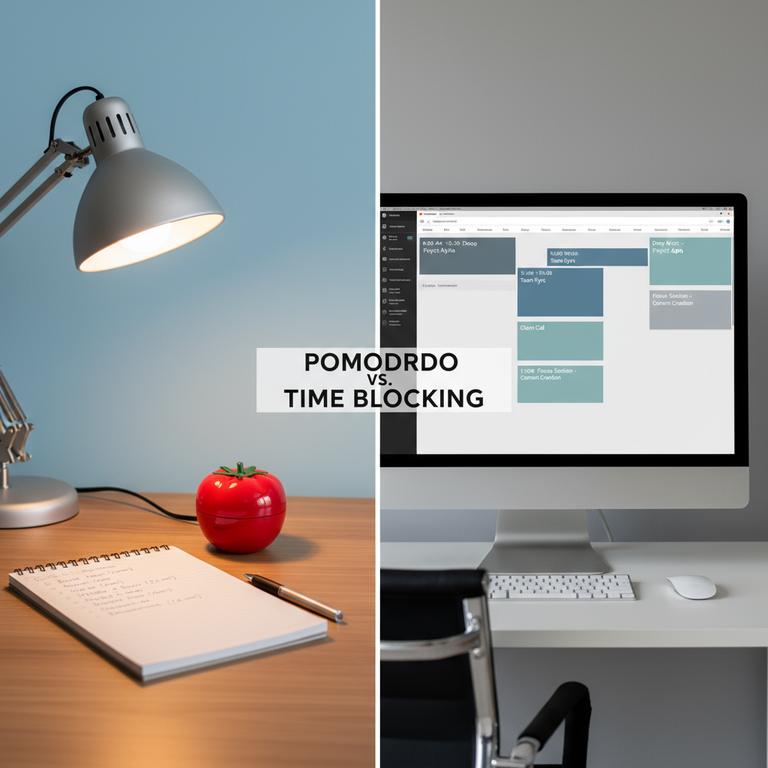The Power of ‘Weekly Reviews’: How 1 Hour on Sunday Can Save 10 Hours During the Week
Advertisement
It’s 8 PM on Sunday. The weekend is winding down, and a familiar, low-grade anxiety begins to creep in. It’s the “Sunday Scaries”—that dreadful feeling of overwhelm as your brain fruitlessly tries to calculate the avalanche of tasks, deadlines, and meetings waiting for you. You wake up Monday morning already behind, starting your week in a purely reactive “firefighting” mode. You spend the next five days bouncing from one urgent (but unimportant) email to the next, only to look up on Friday, exhausted, wondering where the time went and why your *real* projects are still untouched.
This cycle is not a personal failure; it’s a *system* failure. The problem isn’t a lack of effort; it’s a lack of a plan. The most effective professionals in the world don’t just “show up” on Monday; they *design* their week before it ever begins. This strategic ritual is known as the Weekly Review.
It may sound counter-intuitive to give up an hour of your weekend. But The Power of ‘Weekly Reviews’ lies in its incredible return on investment. This one hour of focused, strategic planning on a Sunday is the single best way to buy back 10+ hours of focused, productive, low-stress time during the week. This guide explains the power, the process, and the real-world ROI of this career-changing habit.
Why “Reactive Mode” Is Killing Your Productivity
Most professionals live in “Reactive Mode.” Their day is dictated not by their own priorities, but by the priorities of others. Their primary “to-do” list is their email inbox. When you start your day without a plan, you are ceding control of your time and focus to the first person who sends you a notification.
This reactive work is the enemy of high performance. It’s “shallow work”—logistical, low-value, and distracting. The *real* work, the “deep work” that creates value and accelerates your career (like strategic planning, creative problem-solving, or writing a complex proposal), gets pushed to the margins. You tell yourself you’ll “get to it later,” but “later” never comes because your energy has been completely drained by a thousand tiny, reactive tasks. The Power of ‘Weekly Reviews’ is that it shatters this cycle.
What Is a ‘Weekly Review’? (A System Reset, Not a To-Do List)
Popularized by David Allen’s “Getting Things Done” (GTD) methodology, a Weekly Review is not just “making a to-do list.” It is a comprehensive system reset. It’s the moment you stop *doing* the work and start *thinking about* the work.
The goal is to get 100% of the “stuff” that’s clogging your brain—all the open loops, ideas, worries, and half-remembered tasks—out of your head and into a trusted external system. Once your brain trusts that *everything* has been captured, processed, and scheduled, it finally stops the anxious “reminding” cycle. It “closes” the dozens of mental tabs you have open, freeing up all that cognitive energy to focus on the task at hand. This is the source of The Power of ‘Weekly Reviews’: it gives you a clear, calm, and focused mind.
The 5-Step Framework for a 60-Minute ‘Weekly Review’
Set aside one hour. Put your phone in another room. Close all tabs. This is your strategic “CEO time.”
Step 1: Get Clear (15 Minutes)
First, you must collect all your “open loops.” The goal is to get *everything* out of your head. Look in all your “inboxes” and dump their contents into one “master list” (this can be a legal pad or a digital note).
- Your email inbox
- Your physical desk tray
- Your various note-taking apps
- Your text messages / voicemail
- Most importantly: Your brain. Do a “mind dump” of every single thing you’re worried about or need to do. “Buy milk,” “Follow up with Client X,” “Start the Q4 report”… write it all down.
Step 2: Get Current (15 Minutes)
Now, you need to ground yourself in the reality of the past and future.
- Review Last Week’s Calendar: Look back. What appointments did you have? What tasks did you complete? What did you *miss*? Transfer any incomplete items to your new “master list.”
- Review Next Week’s Calendar: Look forward. What appointments, meetings, and deadlines are already set in stone? This gives you the “hard landscape” of your week. You now see the time you *actually* have to work with, not the time you *wish* you had.
Step 3: Get Organized (20 Minutes)
This is the core of the Weekly Review. You now process your “master list” item by item. For each item, you make a decision. Do not skip any.
- Delete: Is this no longer relevant? Get rid of it.
- Do (2-Minute Rule): Will it take 2 minutes or less? Do it *right now*. (e.g., “Email Bob to confirm meeting”).
- Delegate: Can someone else do this? Forward it with a clear request.
- Defer (The “Big Rocks”): This is for everything else. This is your *actual* work. You must now “defer” it by scheduling it. This is where you practice Time Blocking. Open your calendar and physically schedule a time block for this task (e.g., “Tuesday, 9-11 AM: Draft Q4 Report”).
Step 4: Get Aligned (5 Minutes)
You’ve built a plan. Now, check if it’s the *right* plan. Look at your high-level goals for the quarter or year. Ask yourself, “Does my plan for this week move me closer to my most important goals?”
Then, identify your “Big 3” for the week. What are the 1-3 most important things you *must* accomplish this week for it to be a success? This clarifies your *real* priorities.
Step 5: Get Ready (5 Minutes)
The plan is done. The final step is to prepare your environment.
- Clean your physical desk.
- Close all 50 browser tabs.
- Organize your digital desktop.
- Lay out your clothes for Monday morning.
This simple act of “clearing the decks” removes all friction. When you sit down on Monday, you don’t have to “get ready to work”; you can just *start working*.
The Real ROI: How This 1 Hour “Saves” 10 Hours
The Power of ‘Weekly Reviews’ is not theoretical; it’s tangible. Here is where your 10 hours are saved:
- You eliminate “Decision Fatigue” (Saves 2-3 hours/week): You’ve already made the hard decisions on Sunday. You don’t waste 20 minutes every morning and after every meeting wondering, “What’s the most important thing to do next?” Your plan is your guide.
- You Defend Your “Deep Work” (Saves 4-5 hours/week): By scheduling your “Big Rocks” as non-negotiable blocks in your calendar, you create a fortress around your most valuable work. You are no longer “hoping” to find time for it; you have *made* time for it.
- You Prevent “Firefighting” (Saves 2-3 hours/week): The Weekly Review identifies problems *before* they become emergencies. You’ll catch the “I need to follow up with Client X” task *before* it becomes an angry email from them. This dramatically reduces the time you spend fixing errors and apologizing.
- You “Batch” Your Shallow Work (Saves 1-2 hours/week): The review allows you to see all your small, administrative tasks (like “pay bills” or “submit invoices”). You can now batch them into one 30-minute block instead of letting them interrupt you 10 different times throughout the week.
Conclusion: From Firefighter to Architect
Waking up on Monday morning without a plan is like setting sail in a storm without a rudder. You will be thrashed around by the winds of other people’s demands. You will be busy, but you will not be in control.
The Power of ‘Weekly Reviews’ is that it makes you the architect of your week, not just a firefighter within it. It’s the one hour of strategic retreat that allows for 40 hours of focused, productive advance. Stop letting your weeks *happen* to you. Start *designing* them. That is the sustainable path to high performance.







